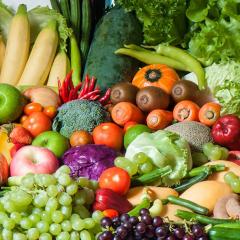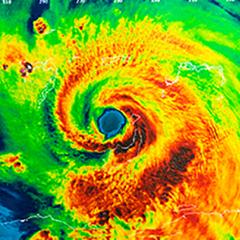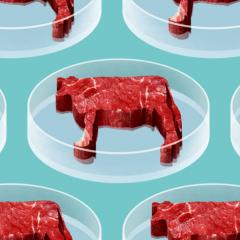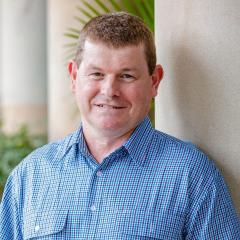Agricultural scientists are setting the stage for a food revolution – a reconfiguration of the way the world farms, which they see as essential to the future of food security.
Over 700 of the world’s leading researchers in food and agriculture will come together at the 2019 TropAg International Conference in Brisbane in November to discuss how that reconfiguration might unfold in the tropics – home to the world’s fastest growing populations and frontline for climate change impacts.
TropAg Conference Chair Professor Robert Henry, and Director of the Queensland Alliance for Agriculture and Food Innovation (QAAFI), says conventional technology simply won’t be capable of producing the amount of food the world needs – even in 20 years’ time.
Professor Henry says cereal crop yield increases of 50 per cent are needed by 2035 to meet the growing demand. However, the genetic basis for yield gains in these crops is essentially already exhausted.
“Innovation across the food supply chain, from the farm to the consumer, is the only option to avert food shortfalls and their associated humanitarian, social and political turmoil,” Professor Henry said.
“This is tantamount to a staging a food revolution … and doing so in a race against time.”
Forward projections are stark, with the world on track for food shortages in coming decades, with the global population forecast to stabilise at about 10 billion people in 2050.
The crisis is especially dire with regards to cereals – bread wheat, rice and maize – the crops that supply half the calories consumed globally.
"By 2050, some 50 per cent of the world's population and close to 60 per cent of the world's children are expected to reside in the tropics," Professor Henry said.
“We are dealing with a crux of issues – population growth, an increase in per capita food consumption that comes with growing affluence, and the challenge of climate and environmental disruptions.”
Professor Henry said climate change was causing drought and more variable rainfall patterns at the same time the world was dealing with increasing scarcity of vital farming resources: arable land, soil fertility and water.
“What we are facing is unprecedented, but we also have access to revolutionary advances in agricultural technology, like artificial intelligence (AI) and robotics, through to genomics and the curation of biodiversity,” Professor Henry said.
Weaving together strands of complementary solutions will be essential, he adds.
“We are going to start to see an acceleration of the diversification of the food supply chain and a concurrent development of new production systems, such as ultra-efficient aquaculture systems, vertical farming and indoor cropping systems.”
Professor Henry said the food production crisis provided a crucial opportunity to reconfigure food security along more diverse, environmentally compatible and sustainable lines.
This kind of thinking is now at the vanguard of agricultural innovation across production systems – in crops, horticulture, livestock, aquaculture and fisheries.
From 11-13 November, thought leaders from these sectors will converge at the Brisbane Convention and Exhibition Centre to attend the third biennial International Tropical Agriculture (TropAg) Conference, which Professor Henry has helped to convene.
“With the conference we are trying to achieve a critical mass of thinking about the food crisis,” he says.
“TropAg is a great opportunity to get synergistic impacts across production sectors and across disciplines that help broaden our thinking and move us in the right direction, both in terms of outcomes for developed and developing countries.”
Presentations span livestock, crop, and horticultural production, and food and nutrition sciences, covering topics including land use diversification, energy from livestock waste, urban agriculture, robots and autonomous technology in horticulture, food safety and traceability, alternative proteins and climate adaptation.
Media enquiries:
- Professor Robert Henry – robert.henry@uq.edu.au
- Margaret Puls – m.puls@uq.edu.au Tel: 0419 578 356
- Carolyn Martin – Carolyn.martin@uq.edu.au Tel: 0439 399 886
More information: www.tropagconference.org
- About TROPAG – the world’s premier international tropical agriculture research conference
- View the TropAg 2019 program
- Full and Day Registration options







